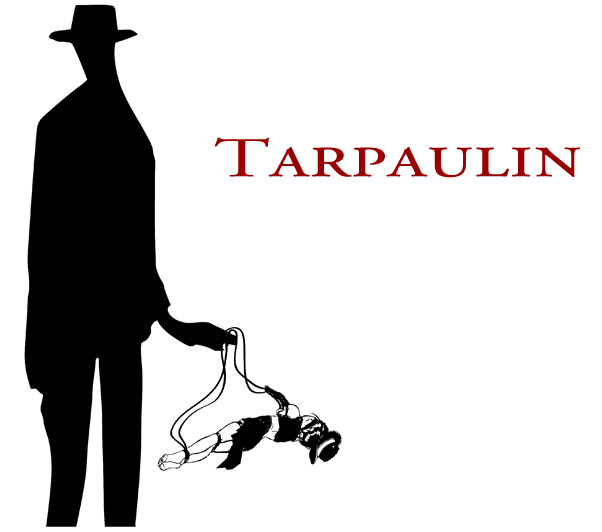 Port Trakl
Port Traklby Jaime Luis Huenún
Translated by Daniel Borzutzky
ISBN 9780979975509
Action Books, 2007
$12
Reviewed by Angela Woodward
Blackbirds and Pelicans: A Review of Port Trakl
Georg Trakl, Austrian poet, when failing school apprenticed himself to a pharmacist for easy access to drugs. He was so panicked serving the pharmacy’s customers that he sometimes sweated through six shirts in the course of one morning. As a child, he once walked into a pond and stood submerged. Only his hat bobbing on the surface marked his presence. He was rescued. During World War I, he was left in charge of 90 severely wounded men whom he could do little to help. Unnerved by this gruesome experience, he shot himself. Though gravely injured, he seemed to be rallying and to have recovered his spirits. But by the time his friend Wittgenstein arrived to cheer him, he was dead of a cocaine overdose, aged 27.
His poems leak a quiet disgust, are often set in twilight, or darkness only briefly illuminated. Figures—children, the lonely one, the golden one, an unspecified woman—appear momentarily and vanish. Short, simple declarative lines present an insistent Trakl rhythm. We hear it right away, the deliberate plod of things doing things: mostly falling, dropping, dying, falling silent. His colors are blue and brown, his bird a blackbird, his trees fir and birch, his landscapes indeterminate borderlands—by a wall, the edge of a forest, always a fairly limited view that shifts as the light wanders off.
Chilean poet Jaime Luis Huenún has captured this same bleak rhythm and constrained landscape in his series of poems Port Trakl, here put into English by Daniel Borzutzky in a bilingual edition from Action Books. In these 25 poems, Huenún has moved Trakl’s poetry into the inner life of drifters haunting a sailor bar in an ocean port. Huenún’s speaker shifts, sometimes a captain, other times an observer of the captain, or a nondescript man who might have been a captain once, except no one cares in the bar of Port Trakl. In Port Trakl, everyone stares into the mysterious visions in their drinks, while the narrator muses on “the poems sweetly burning/ in the overflowing ashtrays” of his life.
Huenún’s poems are reconstructed versions of Trakl, as if half remembered fragments, hybrids, or very loosely, drunkenly translated renditions. The drinkers in the bar hear the crash of waves, but also the cry of a blackbird, an animal that does not belong in this ecosystem. In the next poem, “pelicans covered the pier,” and we are again located in the port, but before long our narrator is crossing a forest of firs in some hazily glimpsed mid-European land. Someone is drinking cognac and anise, while back in Port Trakl, clouds drift by. A man stands smoking on the wharf, and far away, snow falls on pines.
Why do this? Huenún’s poems are a clear tribute to Trakl, dead almost a century, drawing a line back to an Old World forebear. Huenún, who writes here in Spanish, is a Mapuche Indian, an indigenous minority who has edited several volumes of Mapuche poetry. In Borzutzky’s graceful introduction, Huenún comments on the perception that an indigenous poet “can only sing about the natural world, his ancestors, his gods and mythologies,” preferably in his native tongue. Huenún rejects this notion, goes far from it in his revival of the dead Austrian. Yet this beautiful book is an oblique commentary on the ethnic, giving voice to abandoned, soulless, perhaps ruined people, waiting at the margins of a commerceful ocean. Borzutzky says, “one does not need to use the language of home to evoke the social and political realities of home.” In Port Trakl, first world oppression of the third world, displacement of the indigenous, loss of culture, destruction of the environment, envy of the imperialist victor, float out of these poems like a shimmer of spilled oil or whiff of rot, barely there, but weighting our perception of these slight verses. It is a wonderful book, and Borzutzky and Action Books have done us a favor by bringing it into English.
I returned to Port Trakl through the worst
paths in the ocean.
Weakened by salt from the storm, my eyes
were my only cargo.
“Captain,” called the helmsman,
“We are drifting.”
I said no, we are heading straight
for the cloudy port of my heart.
* * *
Angela Woodward's fiction has appeared recently in elimae, Diagram, Pebble Lake Review, Thirteenth Moon and elsewhere. Her book The Human Mind was published by Ravenna Press in 2007.




